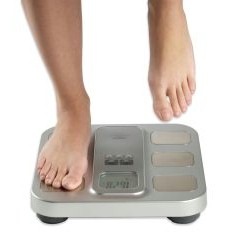 For all those who have tried to lose weight, you know that it is a constant battle. Calories in calories out, low-carb, no-carb, Atkins, South Beach Diet, the Biggest Loser Diet, and this list goes on. There are so many choices, and all we want are results. Some go to extreme measures to lose weight, and in affect, are counter productive. One of the biggest mistakes made on any diet program, believe it or not, is undereating. You may be asking yourself how is that possible? If I take in fewer calories than I eat I’ll lose more weight. Wrong idea.
For all those who have tried to lose weight, you know that it is a constant battle. Calories in calories out, low-carb, no-carb, Atkins, South Beach Diet, the Biggest Loser Diet, and this list goes on. There are so many choices, and all we want are results. Some go to extreme measures to lose weight, and in affect, are counter productive. One of the biggest mistakes made on any diet program, believe it or not, is undereating. You may be asking yourself how is that possible? If I take in fewer calories than I eat I’ll lose more weight. Wrong idea.
That may work for maybe a week, but eventually your body will go into starvation mode. Your body will hold onto every single morsel you put into your body, you will stop losing weight, and possibly gain weight.
I have made that mistake many times. The best plan is simply to live in balance. Eat a good variety of foods, and count your calories. Now, how many calories should you be eating?
That answer varies. There are two different ways to do this. I have used both and like both results.
The first method, take your current body weight, and multiply it by 7. (Ex. I weigh 200 pounds 200×7=1400. I get 1400 calories a day until I reach my goal.) That is it. One problem I find with this method, and the reason I do not use it, is that whenever you weigh yourself you have to adjust your calorie intake, then re-adjust to a maintenance calorie intake when you reach your goal.
The second method, and the one I use, is eating for your desired body weight. Essentially, you eat the amount of calories for a maintenance mode of a certain weight. This form of eating is not as fast on weight loss, but is my favorite for two main reasons. First off, you get to eat more, which is always a plus. And secondly, you never have to adjust how many calories you take in a day. One time figuring and you are finished.
Again, how do you figure it out?
For a man: Let’s say you weigh 230 pounds, but want to get to 200. Eat like you are trying to maintain a 200 pound weight. So take the 200 pounds, multiply it by 10. You get 2000 calories for the day.
But weight (get it), there’s more. For every hour you workout a week AT HIGH INTENSITY, you can add one calorie per pound body weight. So I workout two hours a week, at high intensity, I get another 200 calories a day.
For women: Same formula, but I wouldn’t go over 12 calories per pound of body weight.
Either way you go, you’ll get the right amount of calories, and avoid the classic pitfalls of weight loss!
